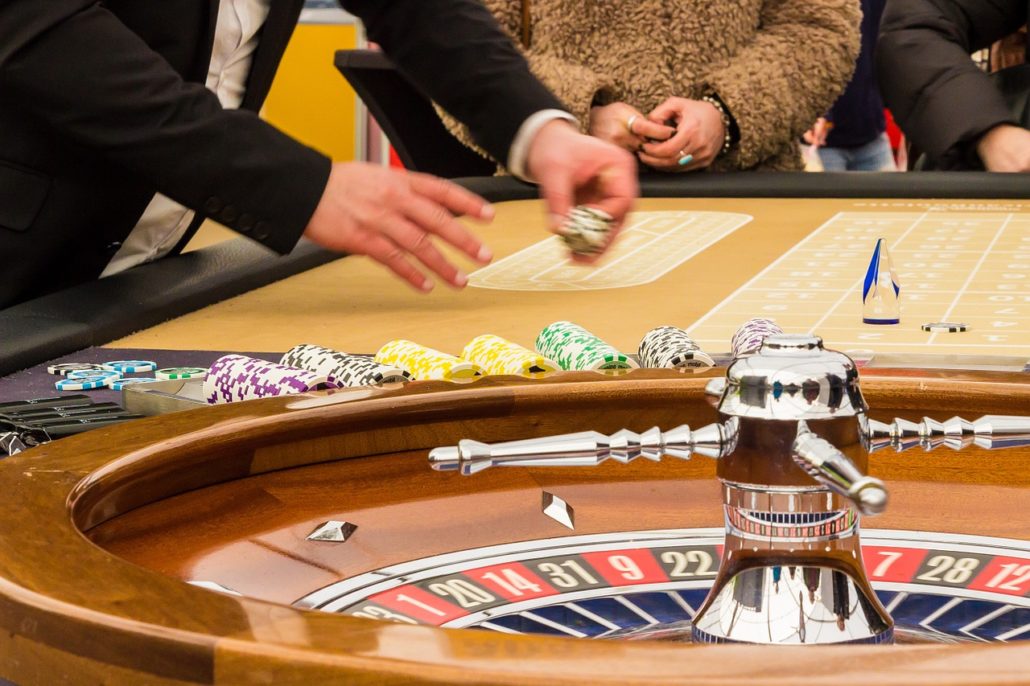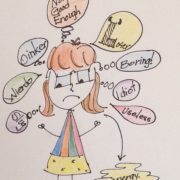What the heck is the sunk cost fallacy? We worry about things we’ve already lost. Humans have evolved to worry about scarcity. It is how we stayed alive. But now, it has evolved into the idea of always getting our money’s worth.

And no matter how much I pay attention to the sunk cost fallacy, I still naturally gravitate towards it. Stores know this, and play it up to the hilt with BOGO’s and buy 3, get 5 more, or buy one, get the next pair half off, or coupons you can only use the next time you come in to the store. They use it because it works to get us to spend more. Consider how many times have you ended up with some item or garment that you really don’t like that much, or maybe it even ends up at the thrift store with the tags still on it!
The term sunk cost refers to any cost (not just monetary, but also time and effort) that has been paid already and cannot be recovered. So, it’s a payment of time or money that’s gone forever, basically. The cost has been ‘sunk.’ Keep reading for how this applies to relationships.
As previously mentioned, the reason we can’t ignore the cost, even though it’s already been paid, is that we wired to feel loss far more strongly than gain. Nobel prize winner and psychologist Daniel Kahneman explains this in his book, Thinking Fast and Slow.
“Organisms that placed more urgency on avoiding threats than they did on maximizing opportunities were more likely to pass on their genes. So, over time, the prospect of losses has become a more powerful motivator on your behavior than the promise of gains.”
In other words, we can’t stand to lose money.
Getting Your Money’s Worth—The Sunk Cost Fallacy
In a famous 1985 experiment, researchers Arkes and Blumer offered two scenarios.
Participants were asked to choose a trip to take when they accidentally purchased nonrefundable tickets to two trips that overlapped in time frame. They had previous bought a trip for $100 that promised to be good. Then they found another better trip for $50 that promised to be great.
Guess what they picked? Over half went with the $100 good trip due to the perceived loss even though the $50 trip would have been more fun. The sunk cost fallacy leads us to miss or ignore the logical facts presented to us, and instead make irrational decisions based on our emotions—without even realizing we’re doing it!
This prevents you from understanding the best choice is to do whatever promises the best future return. You cannot recover what is already ‘sunk.’ Negating the feeling of past loss gets you nothing, since the loss cannot, in actuality, be recovered.
Here’s another example.
You buy a movie ticket only to realize the movie is terrible, you could either:
a) stay and watch the movie, to “get your money’s worth” since you’ve already paid for the ticket (sunk cost fallacy)
-or-
b) leave the cinema and use that time to do something you’ll actually enjoy.
The thing to remember is this: you can’t get that investment back. It’s gone. Don’t let it cloud your judgement in whatever decision you’re making in this moment—let it remain in the past.
Oh, And Guess What Else.
This applies to people you have in your life that you keep sinking time and effort into hoping they’ll change.
As Maya Angelou says, “I did then what I knew how to do. Now that I know better, I do better.”
If you keep sinking your love, time, and energy into a relationship due to the sunk cost fallacy, call me or shoot me an email and let’s figure out what a better future might look like!
Page Rutledge, LCSW, MSW, MPH is a Licensed Clinical Social Worker practicing in Wilmington, NC. She specializes in anxiety management and relationship repair. Visit her website and blog at www.pagerutledge.com










